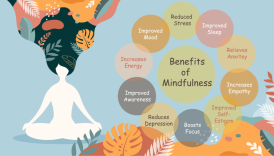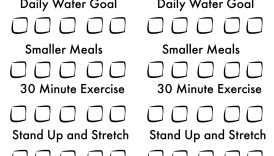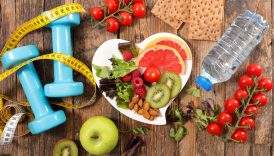From the Kitchen to the Gym: How Eating Right Can Boost Your Fitness Journey

Importance of Nutrition in Fitness
Nutrition plays a pivotal role in enhancing fitness levels. It is not just about what is consumed but how those nutrients fuel the body. Proper nutrition provides the energy required for workouts, aids in muscle recovery, and significantly impacts overall performance. For anyone aiming to reach their fitness goals, understanding the importance of quality nutrition can be a game changer. For example, after adopting a balanced diet rich in whole foods, many individuals report improved energy levels and better exercise recovery.
- From the Kitchen to the Gym: How Eating Right Can Boost Your Fitness Journey
- Importance of Nutrition in Fitness
- Relationship Between Diet and Exercise
- Understanding Macronutrients
- Role of Carbohydrates in Energy
- Importance of Protein for Muscle Repair
- Micronutrients for Optimal Performance
- Benefits of Vitamins in Fitness
- The Role of Minerals in Exercise
- Pre-Workout Nutrition Tips
- Timing and Composition of Meals
- Hydration for Workout
- Post-Workout Recovery Foods
- Protein-Rich Snack Options
- Replenishing Electrolytes After Exercise
- Meal Planning for Fitness Success
- Balanced Meal Ideas
- Incorporating Superfoods into Your Diet
- Supplements for Fitness Enthusiasts
- Whey Protein and Its Benefits
- Pre-Workout Supplements Guide
- Importance of Adequate Hydration
- Water vs. Sports Drinks
- Hydration Apps and Trackers
- The Gut-Brain Connection in Fitness
- Impact of Gut Health on Performance
- Probiotics and Digestive Enzymes for Athletes
- Mindful Eating Practices for Athletes
- Techniques for Eating Mindfully
- Avoiding Emotional Eating Triggers
- Fuel for Activity: Quality carbohydrates provide the energy muscles need.
- Muscle Repair: Protein is essential for repairing and building muscles post-exercise.
- Enhanced Recovery: Nutrients facilitate quicker recovery, helping one to stay consistent.
Relationship Between Diet and Exercise
The relationship between diet and exercise is symbiotic; one cannot thrive without the other. When undertaking physical activities, the body demands specific nutrients, and a well-structured diet can meet these demands. Consider a marathon runner who focuses heavily on carbohydrate intake two days before the race. This strategy ensures the body is stocked with glycogen, leading to optimal performance. Essentially, the right diet can enhance exercise effectiveness, reduce recovery time, and even prevent injuries. The goal should be to create a harmonious relationship between what is consumed and how one exercises for ultimate fitness success.
Understanding Macronutrients
Role of Carbohydrates in Energy
Once you grasp the essential connection between nutrition and exercise, it’s crucial to delve into macronutrients—specifically, carbohydrates. Carbs often get a bad rap in diet trends, but they are vital for energy, especially during intense workouts. Think of them as the body’s primary fuel source. For instance, athletes often load up on carbohydrates before competitions to ensure they have enough energy reserves. Foods like:
- Whole grains (brown rice, oats)
- Fruits (bananas, berries)
- Vegetables (sweet potatoes, squash)
not only provide the energy needed but also replenish glycogen stores, which is crucial for sustained performance.
Importance of Protein for Muscle Repair
Equally important in the macronutrient lineup is protein. After a rigorous session at the gym or on the track, the body requires protein to repair and build muscle fibers that undergo stress during exercise. Aiming for a post-workout protein snack can significantly enhance recovery. For example:
- Chicken breast, rich in necessary amino acids.
- Greek yogurt, a delicious source packed with protein.
- Protein shakes, which offer convenience and quick absorption.
Incorporating a balance of carbohydrates and protein is essential not only for energy but also for muscle repair, allowing individuals to come back stronger, ready for the next workout.
Micronutrients for Optimal Performance
Benefits of Vitamins in Fitness
As we shift our focus from macronutrients, it’s time to acknowledge the critical role of micronutrients—vitamins and minerals—in enhancing fitness performance. Vitamins are essential for various bodily functions and can significantly impact energy levels, recovery, and overall resilience during workouts. For example, Vitamin C helps in collagen formation, crucial for joint and tissue health, while the B vitamins support energy metabolism. Incorporating a diverse range of fruits and vegetables can ensure an adequate intake of these vital nutrients. Key vitamins to consider include:
- Vitamin D: Enhances bone health and immune function.
- Vitamin E: Acts as an antioxidant, protecting cells from oxidative stress.
- Vitamin A: Supports vision and immune health.
The Role of Minerals in Exercise
Similarly, minerals play an indispensable part in exercise performance. They help regulate muscle contractions, nerve function, and hydration levels. For instance, magnesium is known to assist with muscle recovery, while potassium aids in preventing muscle cramps. Here are some vital minerals to include in a fitness-focused diet:
- Calcium: Essential for muscle contractions and bone density.
- Iron: Crucial for oxygen transport in the blood.
- Zinc: Supports immune function and protein synthesis.
Integrating a good mix of both vitamins and minerals into one’s diet not only optimizes performance but also ensures that athletes can train harder and recover faster, keeping them at the top of their game.
Pre-Workout Nutrition Tips
Timing and Composition of Meals
As we explore the crucial aspects of nutrition that influence fitness, pre-workout nutrition stands out as a game changer. The timing and composition of your meals can significantly affect performance. Ideally, individuals should aim to eat a balanced meal 2-3 hours before exercising. This meal should combine carbohydrates, proteins, and healthy fats to provide sustained energy. For example, a pre-workout meal might include:
- Oatmeal topped with fruit and nuts – providing complex carbs and healthy fats.
- Chicken breast with quinoa and steamed vegetables – offering quality protein and fiber.
If pressed for time, a light snack 30-60 minutes before the workout, like a banana or a small yogurt, can offer a quick energy boost without causing discomfort during exercise.
Hydration for Workout
Hydration is another critical element that often gets overlooked. Staying adequately hydrated before a workout ensures optimum performance and helps prevent fatigue. Drinking water throughout the day is essential, but striving to have at least 16-20 ounces of water about two hours prior can make a significant difference. Consider these hydration tips:
- Electrolyte fluids: Sports drinks can be beneficial, particularly for prolonged or intense workouts.
- Avoid excessive caffeine: While a small amount may enhance performance, too much can lead to dehydration.
By prioritizing the right meal timing and maintaining hydration, athletes can ensure that they are physically and mentally prepared to tackle their workouts head-on. Ultimately, these practices lay the foundation for better performance and recovery.
Post-Workout Recovery Foods
Protein-Rich Snack Options
After a strenuous workout, refueling the body is crucial for recovery and muscle growth. Protein-rich snacks are vital as they help repair muscle fibers that have been broken down during exercise. Consuming a snack within 30-60 minutes post-workout maximizes recovery. For inspiration, here are some fantastic protein-rich snack options:
- Greek Yogurt with Honey and Berries: Not only high in protein but also deliciously refreshing.
- Cottage Cheese and Pineapple: A sweet and savory combination that boosts protein intake.
- Protein Shake with Banana: Quick to prepare, this option is perfect for those on the go.
Incorporating these snacks into a post-workout routine can significantly enhance recovery and muscle repair.
Replenishing Electrolytes After Exercise
Besides protein, replenishing electrolytes is equally important, especially after intense workouts that lead to significant sweating. Electrolytes like sodium, potassium, and magnesium help maintain fluid balance and muscle function. Consider these effective ways to replenish electrolytes:
- Coconut Water: A natural source of electrolytes, it’s hydrating and refreshing.
- Sports Drinks: While often loaded with sugar, the right options can quickly restore electrolyte levels post-exercise.
- Bananas and Oranges: Great snack choices that provide potassium and hydration.
By including both protein-rich snacks and electrolyte replenishment in a post-workout routine, athletes can accelerate recovery and prepare themselves for their next workout session, ensuring they stay on track toward their fitness goals.
Meal Planning for Fitness Success
Balanced Meal Ideas
As we move forward in discussing nutrition for fitness success, meal planning becomes a vital tool for achieving dietary goals. A well-structured meal plan ensures you are fueling your body with the right nutrients at the right times. Each meal should ideally contain a good balance of carbohydrates, proteins, and healthy fats. Here are a few balanced meal ideas to consider:
- Breakfast: Overnight oats topped with almond butter and mixed berries.
- Lunch: Grilled chicken with quinoa and a colorful mixed salad drizzled with olive oil.
- Dinner: Baked salmon with steamed broccoli and sweet potatoes.
These meals are not just nutritious but also easy to prepare, promoting consistency in your eating habits.
Incorporating Superfoods into Your Diet
In addition to balanced meals, integrating superfoods can amplify the health benefits of your diet. Superfoods are nutrient-dense foods that provide extraordinary benefits and can contribute to overall well-being. Some fantastic superfoods to add to your meals include:
- Chia seeds: Packed with omega-3 fatty acids and fiber, great for breakfast bowls.
- Kale: A nutrient powerhouse that can be used in salads or smoothies.
- Quinoa: A complete protein that makes a perfect base for grain bowls.
By planning meals that incorporate these superfoods alongside balanced nutrition, individuals can take significant strides toward fitness success, ensuring their bodies receive all the essential nutrients for optimal performance and health.
Supplements for Fitness Enthusiasts
Whey Protein and Its Benefits
As we delve into the world of supplements for fitness enthusiasts, one of the most popular options is whey protein. Derived from milk, whey protein is a complete protein that contains all essential amino acids, making it ideal for muscle recovery and growth. Many athletes find that incorporating whey protein into their diet helps them meet their daily protein requirements, which can often be challenging through food alone. For example, a post-workout shake can provide a quick and convenient source of protein. Benefits of whey protein include:
- Muscle Recovery: Speeds up recovery by repairing muscle fibers.
- Convenience: Easily mixed into smoothies, shakes, or baked goods.
- Weight Management: Helps in retaining lean muscle while supporting fat loss.
Pre-Workout Supplements Guide
In addition to whey protein, many fitness enthusiasts explore pre-workout supplements to boost energy and enhance performance. These supplements often contain a blend of ingredients designed to improve focus, endurance, and strength. Common components found in pre-workout supplements include:
- Caffeine: Increases alertness and energy levels.
- Beta-Alanine: Reduces fatigue and enhances endurance.
- Creatine: Supports strength and muscle gains.
Choosing the right pre-workout supplement can depend on individual goals and tolerance levels, so it’s essential to start with a lower dose to gauge your body’s response. By thoughtfully incorporating whey protein and pre-workout supplements into their regimen, fitness enthusiasts can optimize their training and recovery, ultimately achieving their health and performance goals more effectively.
Importance of Adequate Hydration
Water vs. Sports Drinks
As we transition to the vital topic of hydration, it’s important to understand the role it plays in overall health and fitness performance. Adequate hydration can make a significant difference in energy levels and stamina, especially during workouts. While plain water is often sufficient for everyday exercise, sports drinks can be beneficial in certain situations. Here’s a quick breakdown:
- Water: Ideal for short workouts or daily hydration, keeping the body well-hydrated without additional calories.
- Sports Drinks: Contain electrolytes and carbohydrates, making them suitable for prolonged, intense workouts (typically over an hour) where electrolyte loss is significant.
Personal experiences often emphasize convenience; for instance, many find that grabbing a sports drink during long runs helps maintain energy levels and prevent cramping.
Hydration Apps and Trackers
To further support hydration goals, technology has made tracking fluid intake easier than ever. Various apps and trackers can help individuals monitor their hydration levels and remind them to drink water throughout the day. Some popular options include:
- MyWater: Simple to use with customizable water goals.
- WaterMinder: Provides reminders based on personal drinking patterns.
- Hydro Coach: Tracks hydration based on activity levels and body weight.
Using these tools can serve as a fun and effective way to make sure you’re staying hydrated, allowing individuals to focus on their workouts without the worry of neglecting hydration. Ultimately, prioritizing hydration—whether through water or suitable sports drinks—can significantly enhance fitness performance and overall well-being.
The Gut-Brain Connection in Fitness
Impact of Gut Health on Performance
As we delve deeper into the fascinating world of fitness, one area that’s gaining attention is the gut-brain connection. Recent studies suggest that gut health significantly impacts overall performance and even mental clarity during workouts. A healthy gut can influence mood, energy levels, and even how quickly you recover after exercise. For example, athletes often note a correlation between their diets filled with fiber-rich foods and improved performance. Key aspects to consider for gut health include:
- Diverse Diet: Consuming a variety of fruits, vegetables, and whole grains promotes a diverse gut microbiome.
- Hydration: Adequate water intake supports digestion and nutrient absorption.
- Limit Processed Foods: These can disrupt gut balance, potentially affecting energy levels.
In essence, a well-functioning gut can lead to enhanced physical performance and mental focus during training.
Probiotics and Digestive Enzymes for Athletes
To support gut health, many athletes turn to probiotics and digestive enzymes. Probiotics, which are beneficial bacteria, can help restore balance in the gut and improve digestion. Foods like yogurt, kefir, and fermented vegetables are excellent sources of probiotics. On the other hand, digestive enzymes aid in breaking down food more efficiently, allowing for better nutrient absorption. Some commonly used digestive enzymes include:
- Amylase: Helps digest carbohydrates.
- Protease: Aids in protein digestion.
- Lipase: Assists in fat breakdown.
Incorporating probiotics and digestive enzymes into an athlete’s diet can lead to increased nutrient uptake, supporting overall recovery and performance. By focusing on gut health, individuals can enhance not only their physical fitness but also their mental well-being, paving the way for holistic success in their fitness journey.
Mindful Eating Practices for Athletes
Techniques for Eating Mindfully
As we explore mindful eating practices tailored for athletes, it’s important to recognize how this approach can enhance both performance and overall well-being. Mindful eating encourages athletes to fully engage with their food, promoting healthier choices and better digestion. Here are some effective techniques to practice mindful eating:
- Slow Down: Take the time to chew your food thoroughly, savoring the flavors and textures.
- Eliminate Distractions: Avoid eating in front of screens; instead, focus on your meal to enhance awareness of your body’s hunger cues.
- Listen to Your Body: Pay attention to feelings of hunger and fullness. This helps in preventing overeating or undereating.
By adopting these practices, athletes can build a stronger connection with their food and effectively support their training.
Avoiding Emotional Eating Triggers
In the context of fitness, emotional eating can derail progress and lead to unhealthy relationships with food. Recognizing triggers is crucial for athletes aiming to maintain a balanced approach to nutrition. Some common emotional eating triggers include:
- Stress from Training: High-pressure situations can prompt the desire to snack.
- Boredom: Eating out of boredom rather than hunger is a common pitfall.
- Fatigue: Feeling exhausted can lead one to crave comfort food for a quick energy boost.
To combat these triggers, athletes can implement strategies such as:
- Journaling feelings: Keeping a food and mood diary can help identify patterns.
- Mindfulness practices: Techniques like meditation or yoga can reduce stress levels and create awareness.
By recognizing and addressing emotional eating triggers, athletes can cultivate a more wholesome relationship with food, leading to improved focus and performance. Ultimately, mindful eating nurtures both the body and mind, further contributing to success on their fitness journeys.





